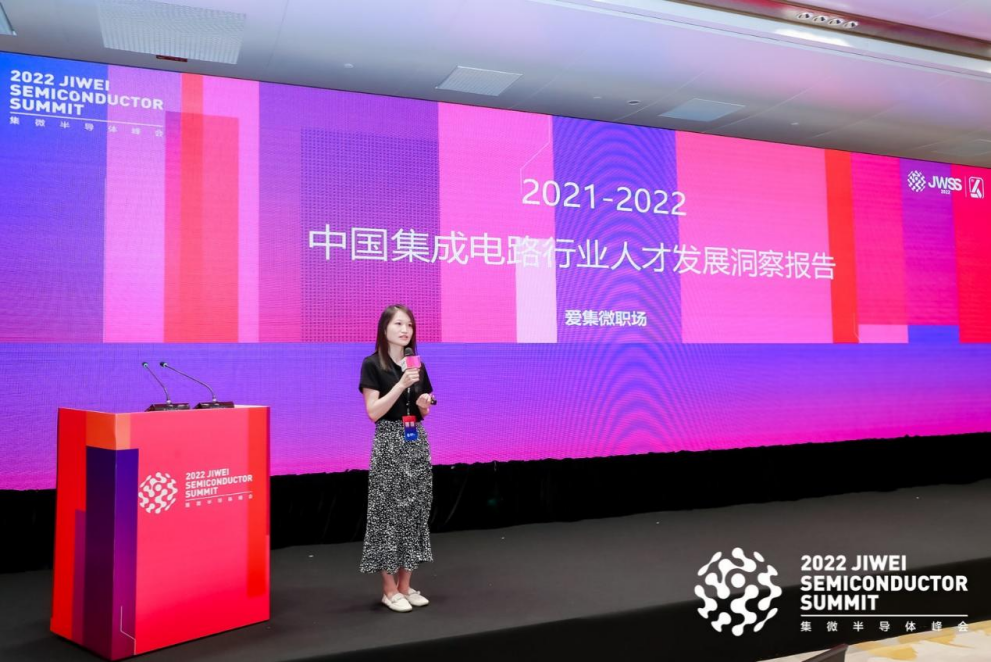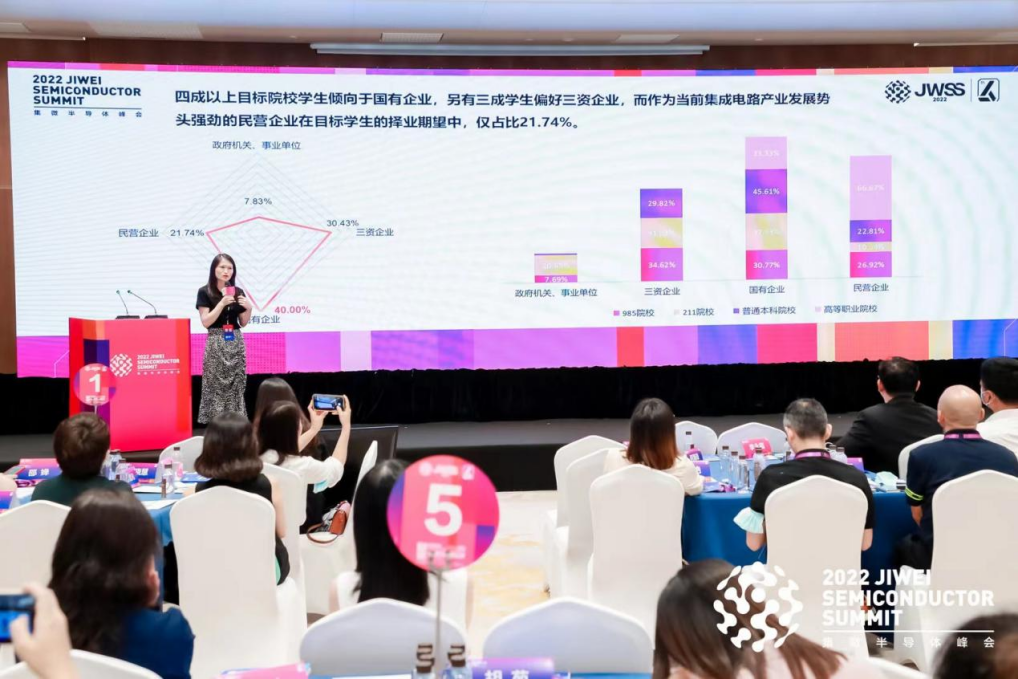
By Kate Yuan
JW Insights released the China’s IC Industry Talent Report 2021-2022 at the 6th JWSS (JiWei Semiconductor Summit) on July 16 in Xiamen City of southeastern China’s Fujian Province.
The report covers the statistics and information on talent distribution, salary, welfare and employment conditions as well as the relationship between policy support and industry development in China’s semiconductor industry.
One interesting finding of the report: more than 40% of students tend to choose state-owned enterprises after graduation. Although private enterprises now have strong development momentum, only 21.74% of the graduates would like to work there.
He Haiqiong, JW Insights’ senior analyst presented the report at the summit. She pointed out that Chinese first-tier cities - Shanghai, Beijing, and Shenzhen - are more attractive to IC talents, accounting for nearly half of the talent demand. The eastern Chinese regions have the largest talent demand, taking up over 30%.

The concentrated high-quality resources in Shanghai have made the city rank first in IC talent demand, accounting for 16.45%. More than 30% of the university graduates preferred to work in Shanghai, followed by Beijing, Xi'an, Shenzhen, Chengdu, Wuhan, Hefei, Suzhou, Nanjing and Hangzhou.
Promising career prospects, competitive salary, and good work conditions are the main attractions. Housing loan interest payments subsidy is the most motivating benefit.
The salary of the IC industry is also rising with the unbalanced talent supply and demand. Shanghai and Beijing took the lead among the top 10 cities in terms of average annual salary, both exceeding RMB300,000 ($44,460). Talents with 3-5 years of experience are the most sought-after group.

JW Insights’ data shows that the graduates’ expected average monthly salary is RMB15,556.98 ($2,305.54). The R&D positions are the highest paid among all types, reaching RMB17,165.15 ($2,543.88).
Among the graduates of 20 state-designated exemplary microelectronics universities, 47.20% have undergraduate degrees, and 52.80% have postgraduate degrees. About 33.67% of these graduates majored in microelectronics.
Information transmission, software and IT service industries accounted for the highest proportion of graduates at 23.42%.
RELATED
-
JW Insights: Chinese IC graduates expect average annual salary of $42,290 in 2024
11-09 17:56 -
JW Insights: R&D expenses of 205 listed Chinese semiconductor companies total RMB52.6 billion ($7.22 billion) in the first three quarters of 2023
11-06 18:37 -
Chinese chip conglomerate Tsinghua Unigroup inaugurates “Unigroup Academy”
11-02 14:16
READ MOST

No Data Yet~







